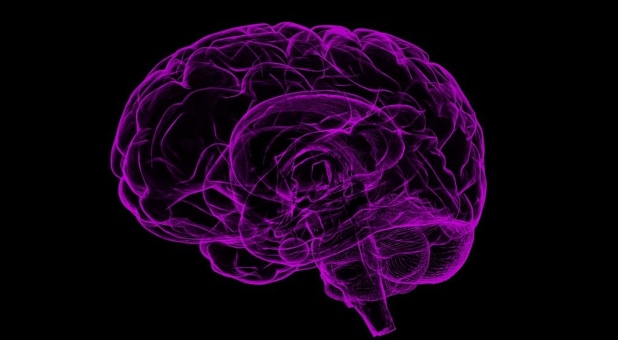Snapshots of Dementia: Desperately Seeking Diagnosis

In a previous episode of “As the Journey Toward Diagnosis Turns,” Tom’s most recent neurologist (No. 3, in case you’re counting) had requested two things to help her solidify Tom’s diagnosis: a PET scan of his brain and the records from the neuropsychologist.
Insurance denied the PET scan, but the doctor wanted us to come in anyway. I fought the early-morning Orlando traffic only to discover that the neuropsychologist hadn’t accepted this most recent neurologist’s form, so he hadn’t sent the records. Instead, we had to fill out an additional request. As soon as we completed and signed it, our neurologist’s office faxed it back, believing Tom’s records would arrive soon.
We waited. And waited. And ended up having to reschedule because the records still hadn’t arrived. In fact, the neuropsychologist’s office had stopped answering the phone when our neurologist’s office called.
Throughout this season of my life, I have had some amazing and supportive medical personnel who have assisted us. But I have also experienced the frustration of dealing with a system that somehow works against rather than for the patient. Why should our health records not be our health records? Why should we have such a difficult time obtaining them to share with another health professional?
Fast forward to a few weeks later, another denial of the PET scan by our insurance and another visit to the neurologist. This time, she had the results of the neuropsychological exam. I wasn’t convinced they would help her much, since that practitioner had told us Tom’s only issues were ADHD and shame associated with some of his poor choices. But of course, we were glad to have another appointment.
This time, they did another preliminary memory test, and Tom again charmed the nurse’s assistant. I couldn’t tell if he remembered our previous visit or not, but after a brief physical exam and a few more questions, the neurologist explained her dilemma. After reviewing his records, she felt even more confident that he had frontotemporal degeneration, behavioral variant (and by now, I’d done enough reading to agree with her). But she hesitated to make a firm diagnosis without “proof” via a PET scan (I’ve since learned from other FTD spouses as well as medical reports that PET scans do not always provide such proof.) Since our insurance wouldn’t pay for it, we could either wait until Tom turned 65 and get it via Medicare (at that time, nearly two years away), pay for it ourselves (at approximately $5,000) or remain undiagnosed.
It may not surprise you that, with my newfound advocacy for my husband, I chose the fourth door: Another neurologist. By this time, I had become connected with the Association for Frontotemporal Degeneration, so I looked at the AFTD website and found just two brain clinics in Florida that they recommended. The first wouldn’t take Tom as a patient. The second would, and although it was more than three hours away and I would have to pay out of pocket, I knew a diagnosis would make it well worth the trip. Besides, if this neurologist was an expert in FTD, surely we would have an answer one way or another. Of course I didn’t expect such an answer at the first visit, but I did expect progress.
Why did an answer/a diagnosis matter so much? I knew if Tom really did have FTD, there wasn’t a cure or even a treatment per se, but I did need to know as we considered his long-term medical needs. In addition, at this point (September 2019), he hadn’t worked for several months—not because he didn’t want to, but because he was simply unable to do so. I decided not to keep putting either of us through the trauma of lost jobs and the additional difficulty of transportation now that he no longer drove. Instead, I’d push hard for a diagnosis that could lead to disability income through Social Security.
In an ironic twist, as I write this, we’re close to a year and a half past this appointment and, although we do have a diagnosis, we still don’t have disability income. But that’s another story for another day. For now, we waited for yet another appointment and another neurologist. I don’t believe in lucky numbers, but I hoped and prayed that neurologist No. 4 would give me at least some of the answers I found myself so desperately seeking.
Remember the delay between neurologists because of an unwillingness to share records, and then a canceled appointment because of the same issue? After these incidents, I now follow the advice of a friend who traveled a similar path and keep personal copies of every one of Tom’s tests and medical records. If a doctor needs them, I can share them. And if you have a family member who has, or seems to have, any medical condition that requires multiple appointments and tests, I recommend you do the same.
Have you experienced difficulty in a path toward a dementia diagnosis? Did you have trouble obtaining medical records when you needed them? Feel free to share your experience here. Your story matters—and so do you.





I feel your frustration with obtaining medical records so much. It was 2003. My husband did not have dementia, but cancer, and we experienced similar problems getting records sent to another doctor for a second opinion. The delay resulted in postponed treatment that may have shortened his life. I wrote letters and eventually talked with the doctor who was not helpful. I later learned that his office changed procedures so hopefully no one else has to go through this. What you experienced is so common and so wrong. Thanks for sharing your story.
I’m so sorry to hear of this, Kathleen. What a blessing that you advocated for him and have helped others in the process. Thank you so much for sharing!